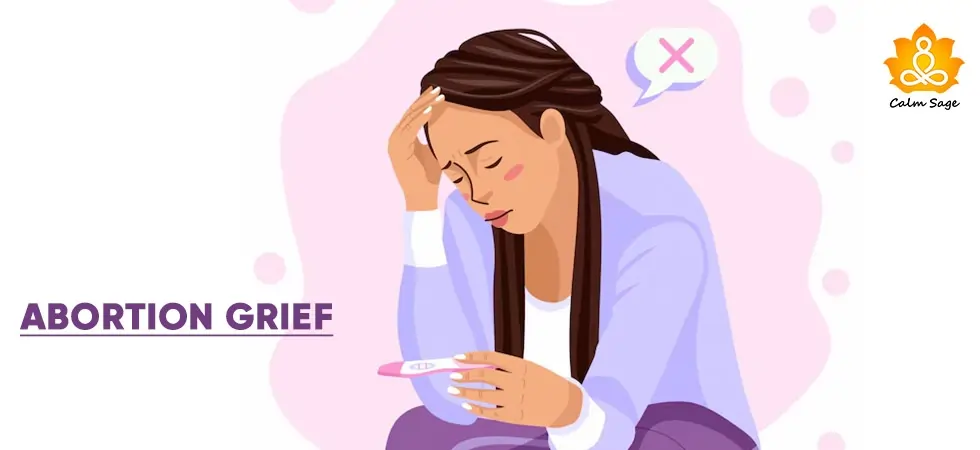13 Myths about Grief and What You Should Do About Them

Grief is a response to loss and is generally linked with the death of a loved one. I, too, experienced it when I lost my beloved cat last week. I adopted her as a kitten; she has been with me through thick and thin since then. She was my secret keeper, and now with her gone, adjusting to things has become difficult for me. This experience made me think about the process of grieving.
Unfortunately, grief is nothing new to me. At a very young age, I lost my grandfather. But losing my cat has shaken me, and I went to my loved ones for comfort. This is when I found that there are expectations surrounding how grief and healing should look.
These expectations are the root cause of the grief recovery myth.
I this Blog I am Going to debunking most common myths about grief and resources you can take help from.
13 Common Myths About Grief

1. Myth: Grief follows a schedule.
Fact: Grief is an unpredictable and personal process. One cannot specify a timeline for grieving. There are different stages of mourning, and people may experience different emotions and reactions based on them.
2. Myth: Time heals wounds.
Fact: Some people believe that time helps reduce the intensity of grief, but grief doesn’t work this way. Just because a few months have passed doesn’t mean the grief is gone. The positive effort, self-care, and support from others are required to recover from grief and heal the wound.
3. Myth: Grief should be kept private.
Fact: Although grief is a personal experience, there is nothing wrong with sharing your feelings and seeking support. Loving ones and support groups assist in recovering from grief, and talking about the loss brings comfort and understanding.
4. Myth: Strong people don’t grieve.
Fact: Grieving is an emotional response to the loss. Regardless of your physical strength, it affects you. However, it affects different intensities. You are not weak if you allow yourself to be weak. It shows you are capable of loving and caring.
5. Myth: Continuing means forgetting.
Fact: After the death or loss of a loved one, if someone starts living happily, people often misjudge them. But moving on doesn’t mean forgetting loved ones or lost things. It means finding ways to integrate the loss into your life while appreciating the memories and emotions that come with it. Just because you can feel happy after a breakup or loss doesn’t mean you are doing something wrong.
Losing someone and then dealing with it can be overwhelming. However, the fact that you are ready to face the world is something to be proud of.
6. Myth: Grief should be overcome quickly.
Fact: Grief is a journey that unfolds at its own pace. You can’t set a timeline for getting over the loss, it is a process, and the healing takes place slowly and steadily.
7. Myth: Mourning follows a specific process.
Fact: As explained by Elizabeth Kubler-Ross, there are different stages of grief, such as denial, anger, bargaining, depression, and acceptance. But this doesn’t mean one has to go through all of them. Each experiences them differently, in a different order, and sometimes the stages are not even experienced.
8. Myth: Keeping busy helps avoid heartache.
Fact: Distracting or doing something can temporarily help you feel better. However, it can’t heal the wounds. Instead, giving time and space to yourself helps in quick recovery. Ignoring or suppressing grief can lead to unresolved feelings later.
9. Myth: Grief only affects your emotions.
Fact: The effects of grief can be experienced or seen physically, emotionally, and cognitively. Fatigue, appetite loss, and difficulty concentrating can be experienced commonly during the grieving process.
10. Myth: Seeking professional help is a waste
Fact: The support of a therapist or counselor can be very helpful in managing the complex feelings of grief. Recognizing when you need extra support is a sign of strength.
11. Myth: You must “get over” the grief within a year.
Fact: Grief is a lifelong process; you can’t set a tab on when emotions should flow. Grief will go away when it will. Be patient and have compassion for yourself.
12. Myth: Women grieve more
Fact: Grieving cannot be gender biased. You can’t say that men feel less or women feel more. Both experience grief in a similar way.
13. Myth: You can only grieve the dead
Fact: Grief can be experienced due to any incident. It can be due to the loss of a relationship, no one celebrating your accomplishments, losing your favorite star, or someone being unjustly killed. Whatever you feel due to these incidents is valid. However, without acknowledging emotions, you can’t overcome them.
Grief Support Hotlines (National and 24-hour)
You can call the Grief holiness if you don’t find any to share your feelings. Here, you will find trained grief-sensitive volunteers who will hear you out without judgment. Also, they will assess the situation before giving you any advice. Depending on your situation, the staff member or volunteer will provide counsel. Most importantly, they will not interfere with what you have to say, and will not give some random advice.
You can call the following numbers when you want crisis intervention. These numbers can be accessed from any cell phone.
1. National Suicide Prevention Lifeline/National Crisis Hotline (800) 273-8255
This is a 24/7 hotline where the call is answered electronically. You can choose to speak with someone in English or Spanish. Anyone with an emotional crisis can call here, and in under two minutes, a trained staff member or volunteer responds.
2. Substance Abuse and Mental Health Services Administration (800) 662-4357
When struggling with any mental health crises, you can call this hotline. The people here connect bereaved individuals with the correct national hotlines for grief counseling.
3. Crisis Text Line – Text HOME to 741-741 in the U.S
If you find talking to a stranger difficult, this one’s for you. For any crisis, you can text this 24/7 and connect with crisis counselors. The service is unlimited and focuses on helping people who need support during hard times.
Besides these, you can also search online for a grief support helpline or hotline number, call a local hospice provider, and they will refer you to in-house counseling services.
If You are Grieving, Don’t Fall For These Misconceptions
These are some common myths about grief. However, they may differ from person to person. Therefore, when you feel sad or lonely, seek support from a friend, family member, or mental health professional. They can support and help you when you are struggling with grief.




















